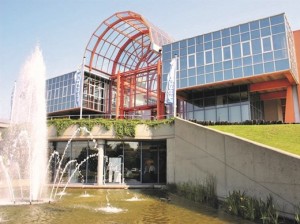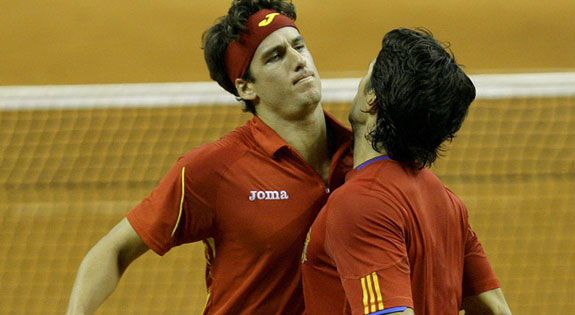At the start of the year, few would have predicted that Belgium and Great Britain would be contesting the Davis Cup final.
With no major depth to their teams, the two nations have overcome the odds to make it through to November’s final, with Belgium having home advantage.
Belgium have played on different surfaces at home this year, but have chosen a clay surface in Ghent for the final, with the decision presumably based on the fact that it is British number one Andy Murray’s weakest surface. The question is whether it’s a gamble that will pay off for Belgium as they bid to win the Davis Cup for the first time, or will it backfire?
You can understand Belgium’s reasoning behind choosing clay as the stats prove it is Murray’s weakest surface. His win record on clay is around 10 per cent poorer than it is on other courts. He has won two-thirds of his ATP Tour matches on clay, compared to at least 77 per cent on other surfaces.
Yet those stats don’t truly reflect the progress Murray has made on clay. The Scot won his first two titles on clay this year when successful in Munich and Madrid, and he is going to shape the final few weeks of his season around the Davis Cup final.
The surface does put more pressure on Murray’s fitness and his back, but he is under no pressure to play in several more events this year after already qualifying for the ATP World Tour Finals. Murray has floated the prospect of missing that event as it falls just a week before the Davis Cup final, but it is unlikely he will be given permission to do so.
Instead, it could be that Murray’s participation in the ATP World Tour Finals will give Belgium their best chance of beating Britain, rather than the clay surface itself. Prior to losing to Fabio Fognini last year, Murray had won his previous seven Davis Cup singles matches on clay.
His ATP Tour record on the surface also stacks up well against his two likely opponents in the singles – David Goffin and Steve Darcis.
Goffin has won 54 per cent of his clay-court matches on tour and Darcis has won 49 per cent. In the Davis Cup, Goffin has won four and lost one match on clay, while Darcis is 11-4 on the surface.
History between the players is, unfortunately, not going to provide too many clues as to what will happen as Murray has faced Goffin just once, when winning in straight sets at Wimbledon in the first round in 2014. He has yet to meet Darcis on tour.
If GB coach Leon Smith selects Dan Evans, the surprise pick in the semi-final against Australia, to play the singles as well as Murray, then Belgium will be confident of winning both matches against him. James Ward or potential Davis Cup debutant Kyle Edmund would, on paper, likely put up a sterner test.
Given the way Murray has played in the Davis Cup this year, he is the reason why Great Britain are odds-on with betfair at the time of writing to win for the first time since 1936. He is far from a one-man team, but it’s obvious why Belgium are trying to find any weakness in the world number three that they can exploit.
If Belgium can take down Murray in one match, they will likely win the Davis Cup. But the surface is unlikely to be the difference.



